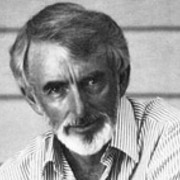
Huntly Eliott
Director, producer and actor Huntly Eliott was a perfectionist who always seemed to have something creative on the boil.
Fellow children's television veteran Kim Gabara has recalled Eliott's passion for children's programming. "I also recall him being very adept at handling the big productions, with the patience to pursue and persevere despite all the setbacks and delays that are inevitably involved".
Born in 1941, Eliott was the son of a journalist who edited the children's page of The Christchurch Star.
Inspired by an outdoor Shakespeare production, Eliott junior began acting in and directing plays at high school. While studying French Drama and English at Canterbury University, he appeared in many plays directed by novelist Ngaio Marsh, utilising a distinctive voice that one friend remarked echoed that of British acting legend James Mason.
Eliott got an MA with Honours but soon abandoned teaching plans, after getting a full-time job at Christchurch radio station 3YA. There he produced, directed and acted in the first of more than a hundred radio plays, working alongside future TV director Yvonne MacKay.
In 1968 Eliott sailed for England, working his way across by playing ship entertainment officer. On arrival he toured England and Wales for four months in a youth theatre company. He also spent time assessing scripts for noted literary agency Curtis Brown.
By 1971 Eliott was back in New Zealand, making radio drama. Then he won the chance to train as a television director, and was sent down to Dunedin station DNTV-1, where he would work as a director and producer on a range of programmes ranging from sport and cooking shows, to children's classic Spot On.
In this period Eliott also co-founded Fortune, Dunedin's first professional theatre, which was sparked by a discussion with drama lecturer David Carnegie after Carnegie auditioned for a TV presenting role. Eliott, fellow Spot On director Murray Hutchinson, Alex Gilchrist and Carnegie established the theatre's first base adjoining the Octagon.
The hope was that useful crossovers might develop between the theatre company and the local TV station. For Huntly (and also his wife, actor and teacher Shirley Eliott) it meant a hectic 1974, balancing his day job directing children's show Spot On, with directing and acting multiple productions on stage.
Though Eliott would occasionally direct television dramas in Christchurch and Wellington (including nine episodes of early soap Close to Home), his main focus became programming for children. For much of the 70s and early 80s Dunedin was the state broadcaster's home base for many children's programmes.
Eliott would work as a director and/or producer on a number of Kiwi children's staples, including Play School, Spot On (for which he shared a 1979 Feltex Award for best speciality programme), Kim Gabara's A Haunting We Will Go (which launched the milk-loving Count Homogenized), and junior current affairs programme Viewfinder. (on which he gave a presenting gig to future MTV success Phillipa Dann).
Eliott kept a hand in theatre. Rehearsals were sometimes held in the family living room, including for the couple's roles in a Globe production of Tom Stoppard's Travesties. Eliott and his wife also made a rare on-screen performance in tele-play That Bread Should Be so Dear.)
In the 80s, Eliott played a big part in bringing teen series Moon Jumper to the screen. Eliott directed and produced this tale of a teenager's bid to overcome adversity, and make it as a champion show jumper. The show sold internationally, and also spawned a series of books.
After 15 years in Dunedin, Eliott was appointed Head of Children and Young People's Programmes in Christchurch. But like former children's department head Kim Gabara, his first love was making programmes. In 1993 Eliott reluctantly moved north to Auckland, where he studied Quality Management and introduced it to TVNZ, and later worked as the organisation's Auckland documentation manager.
Eliott continued to make occasional acting appearances, including on the Xena/Hercules shows. But plans to return to production were sidelined when Eliott suffered a massive seizure in September 1999. Thanks to encouragement from his wife Shirley, Eliott managed to finish an ambitious short story he had begun writing long before.
Huntly Eliott passed away on 27 May, 2000.
Profile published on 24 June 2010
Sources include
Shirley Eliott
Robert Boyd-Bell, New Zealand Television - The First 25 Years (Auckland: Reed Methuen Publishers, 1985)